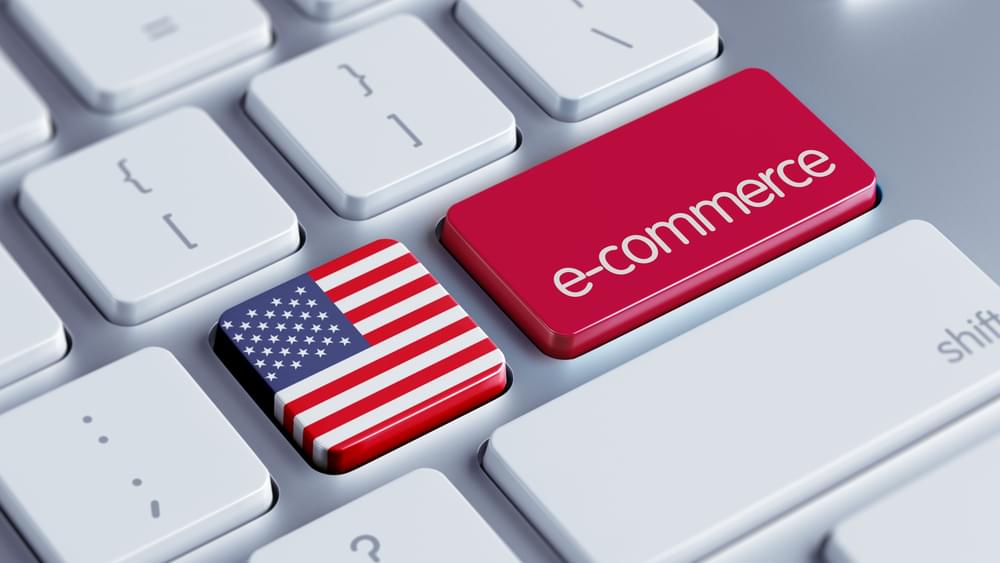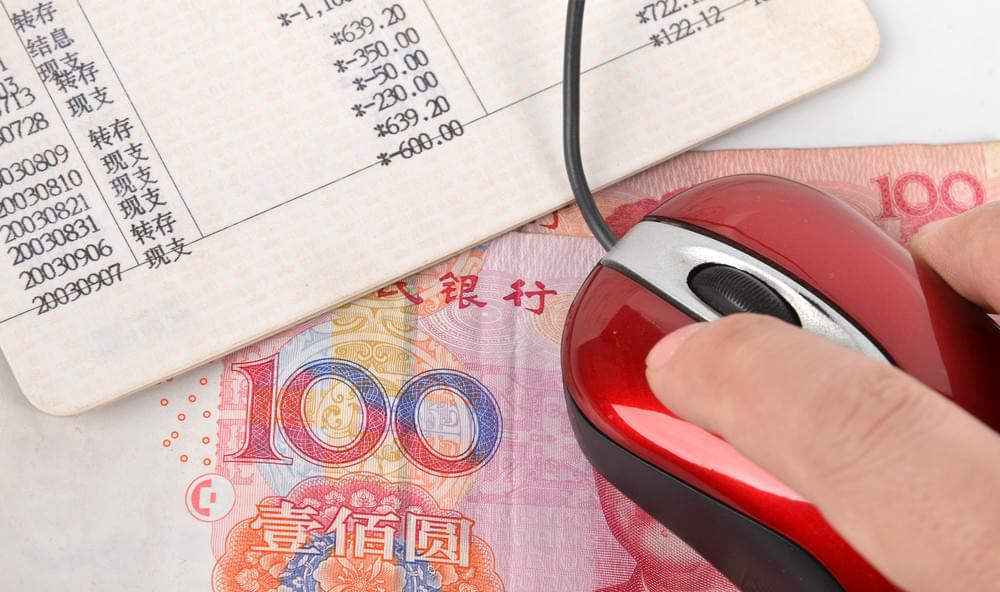根據《財富》網站報導,阿里巴巴(Alibaba, BABA-US)將目光轉向西方,而支付寶則成為該計劃的核心。支付寶的註冊用戶達到3.5億,幾乎是美國PayPal的3倍。支付寶母公司螞蟻金服的美國業務總裁Jingming Li現在負債向美國零售商擴展。(Stockfeel:阿里巴巴的螞蟻金融服務集團(螞蟻金服)成立於2014年10月16日,旗下品牌包括了支付寶、餘額寶、螞蟻小貸及籌備中的網商銀行等品牌。)

Li是一位矽谷資深人士,在Sun公司和網景都擔任過高級工程職位。在中國以外地區,支付寶現象是難以想像的。例如去年11月中國版黑色星期五(雙11),支付寶處理了創紀錄的93億美元交易額。支付寶進入美國也是馬雲打開國際市場的廣泛行動的一部分。
上週馬雲訪問美國時談到如何幫助美國零售商和小企業向快速發展的中國中產階級銷售的問題。中國中產階級人數相當於美國人口,預計在7年內還會成長一倍。《財富》雜誌採訪了Li,談論了支付寶在美國的計劃,公司與租車服務Uber的合作,以及支付寶獨立上市的可能。
以下為此次採訪(經過編輯)的內容
問:支付寶是什麼?
答:多數人將支付寶看做數字生活的錢包。實際上,支付寶是幫助你做任何金融事情,包括在線購物、購買機票甚至支付電費的移動或網頁應用。即使在線下,中國有些實體店也接受支付寶,其不是純粹的金融工具,而是幫助方便生活的工具。
問:與PayPal等其他數字錢包有何不同?
答:主要的不同點之一是重要性,如果你問10個人每天使用支付寶多少次,很少有人會說不用支付寶。有了支付寶你可以出門不帶現金甚至銀行卡,只要帶手機就行。
問:支付寶如何處理線下支付?
答:我們與NFC支付合作,我們在一些店使用專有技術,利用聲音無線傳輸用戶ID和支付信息,我們也使用條形碼掃描驗證用戶。我想未來線上和線下支付方式會融合,在線支付和在實體店支付沒有區別。支付寶將繼續開發這種技術。
問:使用支付寶的用戶有多少?
答:我們有3.5億註冊用戶,但我們是金融機構,註冊用戶不同於非金融機構,我們知道所有用戶的ID,銀行賬戶信息,相比其他支付公司,我們有更多重要的信息。
問:你們如何在這麼短的時間達到這種規模?
答:我們在技術上趕上好時機,不需要太多基礎設施,支付寶為中國消費者解決了一個難題。例如,在支付寶出現前,如果中國消費者想支付水電費,需要在銀行排隊,有了支付寶,他們用手機就可以付賬。
問:美國市場是否適合支付寶並取得快速成長?
答:我們看到中國消費者很想購買美國商品,我們看到支付寶有很大商機。現在美國處於商家一方,需求很大,或許某天會反過來,但現在不是。美國商家在生態系統中是非常重要的部分,去年我們讓梅西百貨(Macy’s, M-US)和薩克斯第五大道(一家美國奢侈品連鎖百貨公司)上線,向中國消費者銷售。
問:Uber中國的合作如何?
答:今年我們在中國也與Uber合作,這也成為Uber在中國獲得成功的關鍵原因之一。
Uber的代表就與支付寶的合作發表評論,稱:“我們在中國取得顯著成長,支付寶是這種成功的關鍵原因之一。”
問:支付寶如何成為Uber成長的推動力?
答:一旦你的應用或網站有支付寶支持,就代表信任,人們願意使用你的服務。這是獲得客戶的極大推動力,我們也有行銷團隊與他們合作發布廣告。
問:支付寶是否也支持Uber在中國的競爭對手?
答:這不是排外的協議。
問:最近哪些美國零售商使用了支付寶?
答:Carter’s、Jewelry.com和Walgreen’s Skin Store。
問:你們如何向美國品牌宣傳?
答:幾乎每個線上購物的中國消費者都是支付寶用戶,這代表著巨大的商機。1-2年後我們將有4億用戶。如果你有線上業務如梅西百貨,就需要支付和物流支持,我們可以幫助他們。沒有理由拒絕3.5億用戶,這比美國人口都多。
問:你們如何防止支付欺詐?
答:任何支付系統安全都是最重要的,我們依賴自己的專有系統,我們的欺詐率很低。我們沒有信用卡,只保存借記卡和銀行賬戶,基本上是基於現金的電子系統。

問:你們為什麼讓支付寶脫離阿里巴巴?
答:這是由於中國政府的建議。
問:支付寶會成為上市公司麼,什麼時候上市?
答:當然,我想很可能上市,這不是秘密。至於什麼時候我無可奉告。
問:支付寶的收入來自哪裡?
答:財務模式與其他支付公司很類似,我們對商家收費,某些消費者服務也不免費。上市後我們會公布這些訊息,支付寶當前利潤很高。(木秀林)
Chinese e-commerce juggernaut Alibaba is looking west. Central to that plan is Alipay, the payments company that Alibaba BABA -1.16% created and later spun off.
Alipay is a digital wallet that shoppers — most of them in China — use to buy products online, on their phones, and even in-stores. With 350 million registered users, it is almost triple the size of its US rival, PayPal.
Jingming Li, president of Alipay’s US parent, Ant Financial, is now responsible for expanding it to US retailers. Li is a Silicon Valley veteran, having held senior engineering positions at Sun Microsystem and Netscape.
Alipay is a phenomenon that is difficult to fathom outside of China. For example, in November, on China’s version of Black Friday, Alipay handled a record $9.3 billion in transactions.
Alipay’s push into the US is part of a broader effort by Alibaba’s founder, Jack Ma, to make inroads outside of China. During a trip to the US last week, Ma talked about how he wants to help US retailers and small businesses sell to the fast growing Chinese middle class, which is already equal in the size of the entire US population and is expected to double in seven years.
Fortune sat down with Li to talk about Alipay’s US ambitions, the company’s partnership with taxi service Uber to accept payments through Alipay, and Alipay’s potential future as a public company.
(This interview was edited for length and clarity)
What is Alipay?
Most people would refer to Alipay as a wallet for your digital life. It’s really a mobile or web app that helps you do everything you need to do financially including purchasing an item online, or buying a plane ticket online or even paying your electricity bill. And it even goes into offline, with physical stores in China able to accept Alipay. It’s not purely a financial tool, it’s designed to help your lifestyle.
How is it different from some of the other digital wallets out there such as PayPal?
One of the major differences is relevance. If you ask ten people how many times during the day you will use PayPal, I don’t know what the answer would be. But in China, it is very rare for anyone to say that they don ‘t use Alipay for anything in a given day. With Alipay, you could leave the house with just your cell phone and no cash or cards, and chances are you will survive.
How does Alipay approaches offline payments?
We work with NFC payments [NFC is a technology that lets people pay for an item using their phone by touching it to a reader at a the cash register]. We have some proprietary technologies in some stores that use sound to transfer user ID and payments information wirelessly. We also use barcode scanning to authenticate users.
I think in the future, there will be the convergence of payments both online and offline using mobile. There will be no difference in the way you pay online and in stores. Alipay will continue to work on this.
How many users does Alipay have?
We have 350 million registered users. But because we are a financial institution, our registered users are different from nonfinancial institutions. We know all of their IDs, their bank account information and have more substantive information than other payments companies.
You’ve achieved that scale in a relatively short amount of time, how?
We were at the right time in technology. There wasn’t a lot of infrastructure to begin with. Alipay really solved a problem for Chinese consumers. For example, before Alipay, if a Chinese consumer wanted to pay a utility bill, they would have to wait in line at a bank. With Alipay, they can pay the bills using their mobile phone.
How does the US market fit into Alipay and its growth?
We see the eagerness from Chinese consumers to buy American products. And we see a lot of value in allowing big and small US businesses sell their products to Alipay members. Right now there is a lot of demand, and the US is on the merchant side of things. It can be visa versa someday, but not now. US merchants are a very important part of the ecosystem. Last year we brought on Macy’s and Saks Fifth Avenue to sell to Chinese consumers.
Tell me about the Uber China partnership
This year we also worked with Uber in China. And it is one of the key reasons why Uber is getting so successful in China.
[Last week, a memo from Uber CEO Travis Kalanick to potential investors leaked that revealed that Uber now counts 1 million rides a day in China and plans to expand to 50 more cities in the next year from 11 cities. Additionally, the number of Uber trips in China have doubled monthly since the beginning of 2015.]
A representative for Uber issued this comment to Fortune on Uber’s partnership with Alipay: “We have seen phenomenal growth for Uber in China and Alipay is one of the key reasons for such a success.”
How was Alipay a driver of growth for Uber?
Once you have Alipay in your app or website in China, it represents trust — meaning people will be more willing to use a service. It’s a great driver for customer acquisition. We also have our marketing team working with them as well to get the message out.
Does Alipay also power payments for any of Uber’s competitors in China?
It’s not an exclusive agreement.
Who are some of the recent US retailers that we would know that have now integrated Alipay as a payment mechanism?
Carter’s, Jewelry.com, and Walgreen’s Skin Store.
What’s your pitch to US brands?
Pretty much every Chinese consumer who wants to buy online is an Alipay member. And it represents a great opportunity. In a matter of a year or two, we will have 400 million users. If you have an online presence like Macy’s, it’s really about payments and logistics to be solved, which we help with. There’s no reason why you wouldn’t want to sell to 350 million members, which is bigger than the US population in general.
How do you prevent payments fraud?
A secure system is a fundamental necessity for any payment system. So we are relying on our own homegrown proprietary systems that have been tried and developed for the past 12 years. We have so much data from our consumers, including bank account information, cell phones , home address, so our fraud level is very low. Also, we don’t have credit cards, and users only link debit cards and banking accounts, basically making us an electronic cash based system. You can think of us a big, gigantic bank.
Why did you decide to make Alipay its own company separate from Alibaba?
It was due to Chinese government recommendations.
Could Alipay be a public company and when will that happen?
Of course, I think there’s definitely potential to be a public company there, it’s no secret. I can’t comment on when that will happen.
Where does Alipay’s revenue come from?
Yeah, the financial model it is very similar to any other payment company. We charge fees to merchants. And certain consumer services are not free. As we become a public company we will release that information but Alipay is currently a very profitable business.
《網易(NetEase, NTES-US)科技授權轉載》


